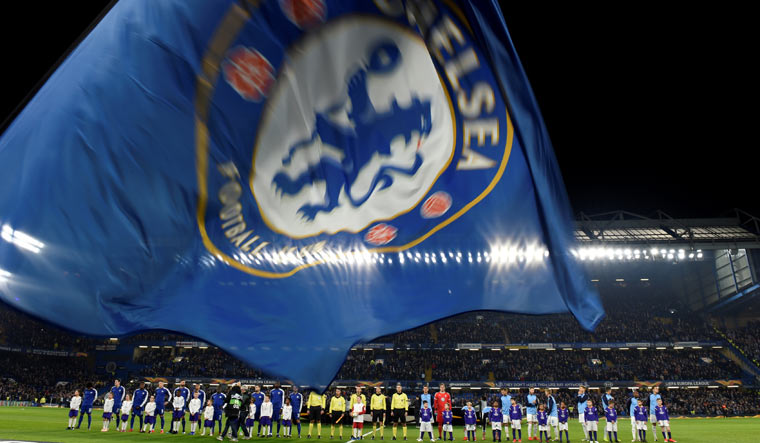Just when it seemed like the good days were here for Chelsea FC—with the 2021 Champions League victory and a burst of talent from the academy—the club has been plunged into unprecedented crisis following the sanctions imposed on its owner Roman Abramovich by the UK government.
Abramovich’s UK assets have been frozen for his alleged links to Russian president Vladimir Putin, who ordered the full-scale invasion of Ukraine. Abramovich has owned 100 per cent of Chelsea since 2003, sparking a trophy-laden era in the club’s history, thanks to the money pumped in by the oligarch.
Some financial capabilities have been frozen for the club with officials unable to use corporate credit cards while Barclaycard examines what is acceptable under government laws.
Chelsea can only operate and play games under the terms of a special licence issued by the government, which includes expenditure limitations and a prohibition on selling tickets, which will stymie the club's income flow. Chelsea's latest announced salary bill was approximately $36 million each month.
The sanctions on Abramovich underline the dangers of politically connected rich owners in English football, while also casting doubt on Abramovich's legacy at Chelsea.
The club's principal shirt sponsor—telecoms group Three—has temporarily stopped its sponsorship and demanded that its logo be removed from the club's clothing and surrounding the stadium until further notice. The sponsor has a £40 million-a-year sponsorship deal with the club.
Kit manufactures Nike is considering a similar suspension, putting at risk a £250 million-a-year deal.
Chelsea can continue to pay players, other employees, and expenses, but it can't pay Abramovich fees or dividends, and a government official stated that he won't be allowed to sell the club "at this time."
The government "would consider an application for a licence" to sell the club, according to the official, but Abramovich would not be able to profit from the sale while sanctioned.
Chelsea is also disallowed from transferring or loaning players in and out of the club.
Though footballing activities continue undisturbed, if Chelsea does not find a buyer soon, it could lead to an exodus of players and coaching and technical staff, leaving the club in a dire situation. The club will have to avoid going into administration at all costs.




